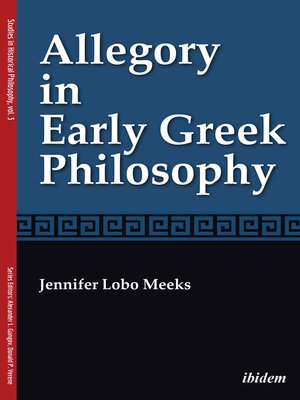
Sign up to save your library
With an OverDrive account, you can save your favorite libraries for at-a-glance information about availability. Find out more about OverDrive accounts.
Find this title in Libby, the library reading app by OverDrive.



Search for a digital library with this title
Title found at these libraries:
| Library Name | Distance |
|---|---|
| Loading... |
Allegory in Early Greek Philosophy examines the role that allegory plays in Greek thought, particularly in the transition from the mythic tradition of the archaic poets to the philosophical traditions of the Presocratics and Plato. It explores how a mode of speech that "says one thing, but means another" is integral to philosophy, which otherwise seeks to achieve clarity and precision in its discourse. By providing the early Greek thinkers with a way of defending and appropriating the poetic wisdom of their predecessors, allegory enables philosophy to locate and recover its own origins in the mythic tradition. Allegory allows philosophy simultaneously to move beyond mythos and express the whole in terms of logos, a rational account in which reality is represented in a more abstract and universal way than myth allows.







